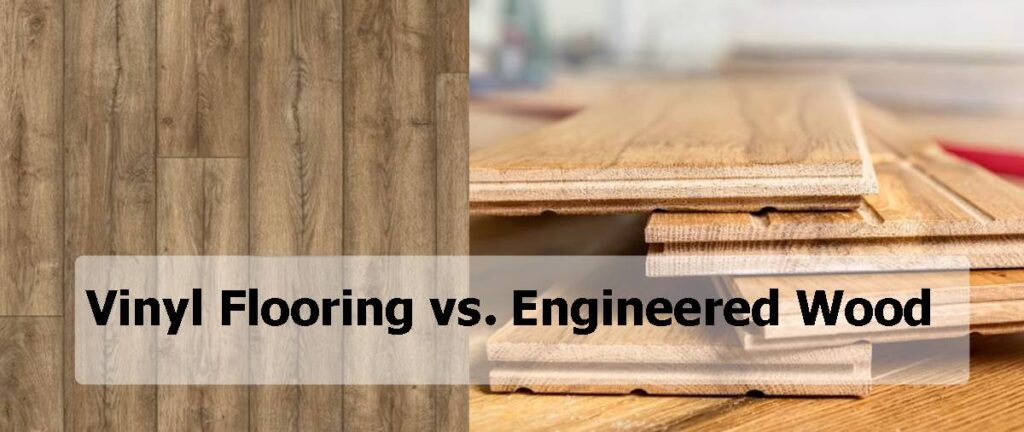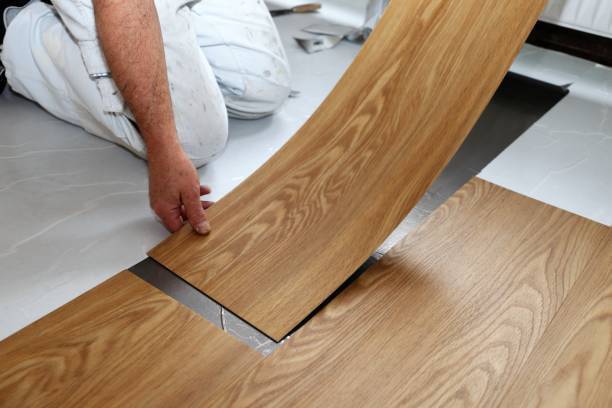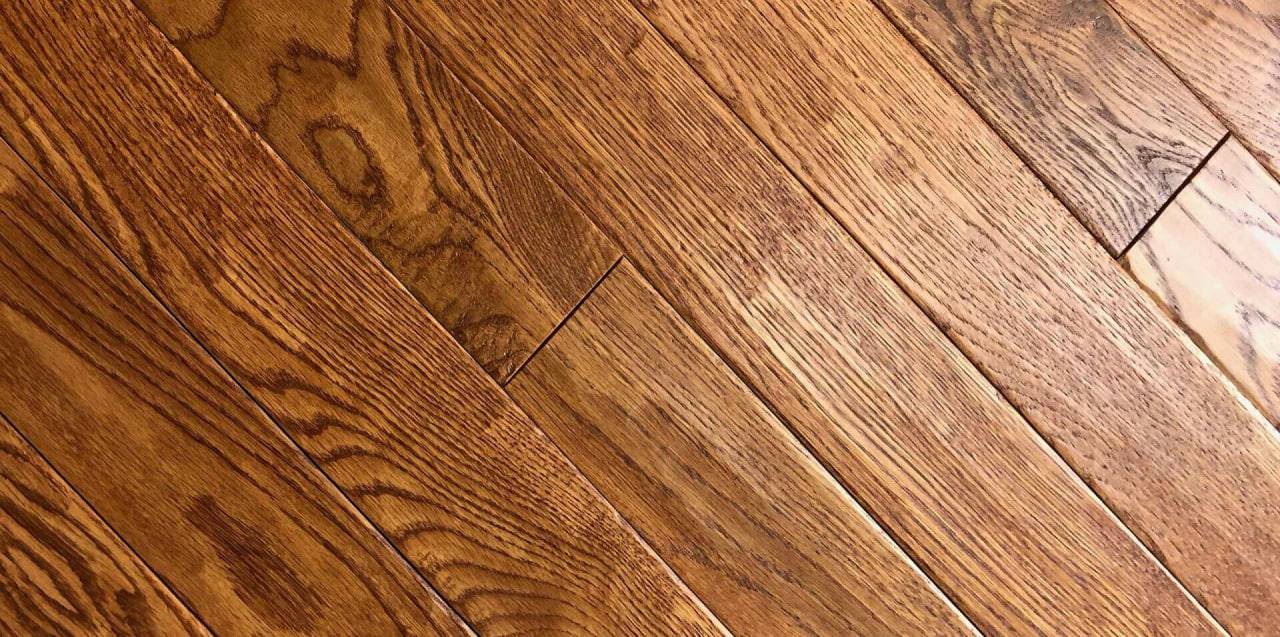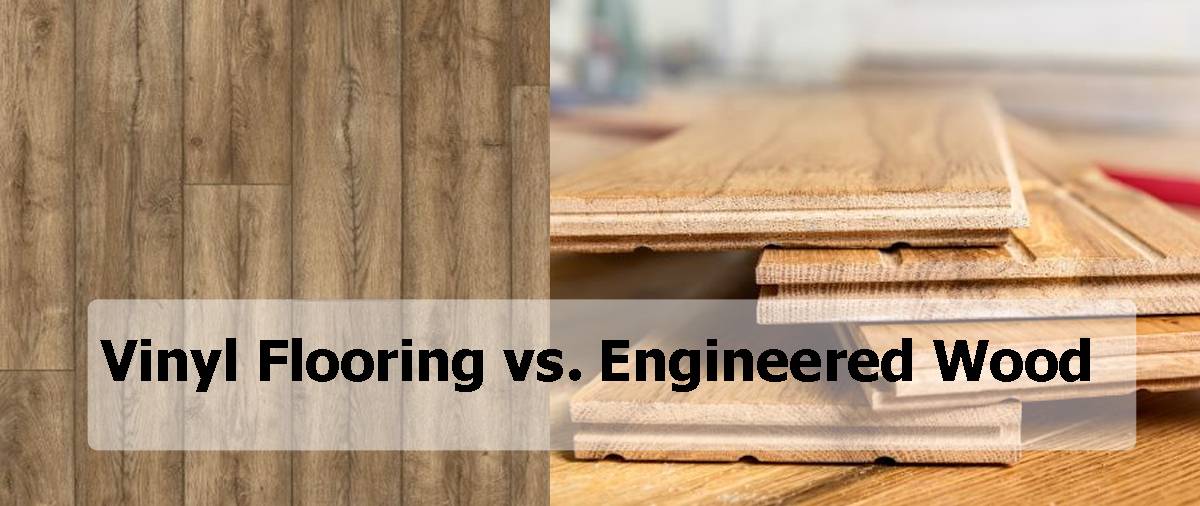Vinyl vs. Engineered Wood Flooring: Choosing the right flooring for your home is a crucial decision that can significantly impact its overall aesthetics and functionality.
While both vinyl and engineered wood flooring offer attractive styles and durability, they differ in their material composition, performance characteristics, and maintenance requirements.
Understanding these distinctions is essential to make an informed decision that aligns with your preferences and lifestyle.
Vinyl Flooring: A Versatile and Affordable Choice
Vinyl flooring has emerged as a popular choice due to its affordability, versatility, and ease of maintenance. It comes in a wide range of styles, from rustic wood grains to elegant marble patterns, replicating the look of natural materials without the associated upkeep.
Vinyl flooring is remarkably resilient to moisture, making it suitable for areas with high humidity, such as kitchens and bathrooms. Its low-maintenance nature requires minimal waxing or polishing, saving you time and effort.
Engineered Wood Flooring: Embracing the Natural Essence
Engineered wood flooring offers a more traditional and authentic look, mimicking the warmth and character of solid hardwood.
It consists of a thin hardwood veneer bonded to a plywood or fiberboard core, providing a more stable and moisture-resistant surface than solid hardwood.
Engineered wood flooring is durable and can withstand moderate foot traffic, but it requires more maintenance than vinyl to maintain its natural shine.
Navigating the Vinyl vs. Engineered Wood Flooring Decision
When deciding between vinyl and engineered wood flooring, consider the following factors:
- Aesthetic Preferences: Vinyl offers a wider range of styles, while engineered wood provides a more authentic wood grain appearance.
- Durability: Vinyl is more resilient to moisture, while engineered wood is more resistant to dents and scratches.
- Maintenance: Vinyl requires minimal maintenance, while engineered wood needs occasional waxing or polishing.
- Budget: Vinyl is generally less expensive than engineered wood.
- Lifestyle: If you have pets or young children, consider vinyl’s resistance to scratches and dents. For areas with high humidity, vinyl’s moisture resistance is a clear advantage.
Ultimately, the choice between vinyl and engineered wood flooring depends on your individual preferences and priorities.
Navigating the Flooring Landscape: A Comparative Analysis of Vinyl and Engineered Wood
In the realm of home improvement, flooring plays a pivotal role, transforming spaces into havens of comfort and style.
Two popular choices that have emerged as front runners in this domain are vinyl and engineered wood flooring. Both options offer attractive aesthetics, durability, and affordability, making them appealing to homeowners seeking versatile and practical solutions.
However, despite their shared qualities, they also exhibit distinct characteristics that make them suitable for different environments, lifestyles, and preferences. Understanding these nuances is essential to make an informed decision that aligns with your specific requirements.
Vinyl Flooring: A Symphony of Versatility and Simplicity
Vinyl flooring has captivated homeowners with its remarkable versatility, encompassing a vast array of styles that replicate the look and feel of natural materials without the associated upkeep.
From the warmth of rustic wood grains to the elegance of marble patterns, vinyl flooring seamlessly adapts to diverse decor preferences.
Its exceptional moisture resistance makes it an ideal choice for kitchens, bathrooms, and basements, where humidity levels are often elevated. Additionally, vinyl’s low-maintenance nature requires minimal waxing or polishing, saving homeowners valuable time and effort.
Key Attributes of Vinyl Flooring:
- Affordability: Vinyl flooring stands out as a budget-friendly option, offering significant cost-efficiency compared to engineered wood.
- Durability: Vinyl flooring is remarkably resilient to scratches, dents, and moisture damage, making it a steadfast companion in high-traffic areas.
- Style Versatility: Vinyl flooring offers an unparalleled range of styles, catering to a diverse spectrum of décor preferences, from traditional to contemporary.
- Minimal Maintenance: Vinyl flooring requires minimal maintenance, eliminating the need for frequent waxing or polishing.
Engineered Wood Flooring: Embracing the Essence of Natural Beauty
Engineered wood flooring embodies the warmth and character of solid hardwood while offering enhanced stability and moisture resistance.
This composite material consists of a thin hardwood veneer bonded to a plywood or fiberboard core, creating a visually stunning and durable surface.
Engineered wood flooring replicates the authentic wood grain appearance of solid hardwood while being less susceptible to warping or cupping due to its dimensional stability.
Additionally, engineered wood flooring offers a more natural feel underfoot compared to vinyl.
Prominent Features of Engineered Wood Flooring:
- Authentic Appearance: Engineered wood flooring faithfully replicates the look and feel of solid hardwood, infusing spaces with a touch of natural elegance.
- Durability: Engineered wood flooring can withstand moderate foot traffic and is less prone to scratches and dents compared to vinyl.
- Stability: Engineered wood flooring maintains its dimensional stability, minimizing the risk of warping or cupping.
- Sustainable Choice: Engineered wood flooring often incorporates reclaimed wood or recycled materials, contributing to a more environmentally conscious approach.
Navigating the Vinyl vs. Engineered Wood Decision
The choice between vinyl and engineered wood flooring ultimately hinges on individual preferences and priorities. For homeowners seeking affordability, versatility, and exceptional moisture resistance, vinyl flooring emerges as a compelling option.
However, if authenticity and a natural feel are paramount, engineered wood flooring may be a better fit, particularly for those willing to engage in occasional maintenance.
Here’s a summary table comparing the key characteristics of vinyl and engineered wood flooring:
| Feature | Vinyl Flooring | Engineered Wood Flooring |
| Material | Synthetic | Composite of hardwood veneer and plywood or fiberboard |
| Durability | Resistant to scratches, dents, and moisture | Can withstand moderate foot traffic and scratches |
| Moisture Resistance | Highly resistant to moisture | More moisture-resistant than solid hardwood |
| Maintenance | Minimal | Occasional waxing or polishing |
| Affordability | Generally more affordable | More expensive than vinyl |
| Style Versatility | Wide range of styles | Authentic wood grain appearance |
| Natural Feel | Low | High |
| Sustainability | Relatively sustainable | Often made from reclaimed wood or recycled materials |
By carefully considering these factors, homeowners can make an informed decision that aligns with their unique needs and aspirations, transforming their living spaces into havens of comfort, style, and durability.
Summary
In conclusion, vinyl and engineered wood flooring are both excellent choices for homeowners seeking stylish, durable, and versatile flooring options. However, each material has its own distinct strengths and weaknesses, making them suitable for different environments and lifestyles.
Vinyl flooring shines for its affordability, moisture resistance, and ease of maintenance, making it an ideal choice for high-traffic areas and homes with pets or young children.
Its versatility ensures that it can seamlessly blend into a wide range of decor styles, from rustic farmhouse to modern contemporary.
Engineered wood flooring, on the other hand, offers a more authentic wood grain appearance, natural feel underfoot, and dimensional stability, providing a touch of elegance and longevity to any space.
Its durability enhances its suitability for moderate foot traffic areas, while its sustainability credentials appeal to ecologically conscious homeowners.
Ultimately, the choice between vinyl and engineered wood flooring depends on individual preferences and priorities. For those seeking practicality and affordability, vinyl flooring emerges as a strong contender. However, if authenticity, natural warmth, and occasional maintenance are valued, engineered wood flooring may be the preferred option.
By carefully evaluating these factors, homeowners can make an informed decision that transforms their living spaces into havens of beauty, comfort, and lasting value.
FAQs about Vinyl vs. Engineered Wood Flooring
Q: What are the advantages of vinyl flooring?
A: Vinyl flooring offers several advantages, including:
- Affordability: Vinyl flooring is generally more affordable than engineered wood flooring.
- Durability: Vinyl flooring is highly resistant to scratches, dents, and moisture damage.
- Water resistance: Vinyl flooring is waterproof, making it an ideal choice for wet areas like kitchens and bathrooms.
- Ease of maintenance: Vinyl flooring is very easy to clean and maintain. You can simply sweep, vacuum, and mop it with a mild detergent.
- Variety of styles: Vinyl flooring comes in a wide variety of styles to match any décor, including wood, stone, tile, and even animal prints.
Q: What are the advantages of engineered wood flooring?
A: Engineered wood flooring offers several advantages, including:
- Authentic wood look: Engineered wood flooring looks and feels like real wood.
- Dimensional stability: Engineered wood flooring is less likely to warp or cup than solid wood flooring.
- Durability: Engineered wood flooring can withstand moderate foot traffic.
- Reclaimed wood: Some engineered wood flooring is made from reclaimed wood, which is a sustainable choice.
Q: What are the disadvantages of vinyl flooring?
A: Vinyl flooring has a few disadvantages, including:
- Not as natural-looking as engineered wood flooring: Some people find vinyl flooring to look too artificial.
- Can be noisy: Vinyl flooring can be noisy when walked on.
- May feel less comfortable underfoot than engineered wood flooring: Vinyl flooring can feel a bit stiff underfoot.
- Not as durable as engineered wood flooring: Vinyl flooring can be scratched or gouged if not handled with care.
Q: What are the disadvantages of engineered wood flooring?
A: Engineered wood flooring has a few disadvantages, including:
- Higher cost: Engineered wood flooring is generally more expensive than vinyl flooring.
- Requires more maintenance than vinyl flooring: Engineered wood flooring needs to be waxed or polished periodically to maintain its appearance.
- Can be damaged by water: If exposed to too much water, engineered wood flooring can warp or cup.
Q: Which type of flooring is right for me?
The best type of flooring for you will depend on your personal preferences and your lifestyle. If you are looking for an affordable, durable, and easy-to-maintain flooring option, vinyl is a good choice. If you are looking for a more authentic wood look and feel, engineered wood is a good choice.




